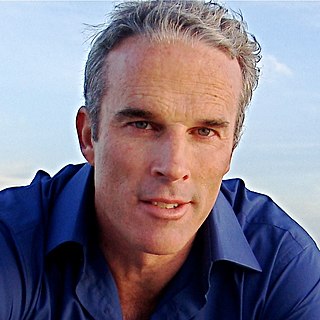A Quote by Sandra Faber
We've been given the gift of a billion years of cosmic time, and we should not screw it up. But at the rate we're using up our planet's natural resources and fouling our own nest means we're not going to last a billion years.
Related Quotes
There is nothing wrong with the planet. The planet is fine ... been here 4 1/2 billion years. We've been here, what, a 100,000 years, maybe 200,000. And we've only been engaged in heavy industry a little over 200 years. 200 years versus 4 1/2 billion. And we have the conceit to think that somehow we're a threat? The planet isn't going away. We are.
We on Earth have just awakened to the great oceans of space and time from which we have emerged. We are the legacy of 15 billion years of cosmic evolution. We have a choice: We can enhance life and come to know the universe that made us, or we can squander our 15 billion-year heritage in meaningless self-destruction. What happens in the first second of the next cosmic year depends on what we do, here and now, with our intelligence and our knowledge of the cosmos.
Our planet has been around only for four and a half billion years. Let's imagine a planet that has life on it such as life is on Earth and it's seven billion years old. Let's say that planet evolved intelligence. Well, that intelligence would be way more advanced than what we call intelligence here on Earth. How long has intelligence been around on Earth as we've come to define it?
If we could magically transport ourselves back to the young Earth, when it was only a billion years old or two billion years old or three billion years old or four billion years old, we wouldn't be able to survive. We would have a hard time surviving if we were transported to the time when dinosaurs were around.
If the age of the Earth were a calendar year and today were a breath before midnight on New Year's Eve, we showed up a scant fifteen minutes ago, and all of recorded history has blinked by in the last sixty seconds. Luckily for us, our planet-mates--the fantastic meshwork of plants, animals, and microbes--have been patiently perfecting their wares since March, an incredible 3.8 billion years since the first bacteria. ...After 3.8 billion years of research and development, failures are fossils, and what surrounds us is the secret to survival.
We've begun at last to wonder about our origins, star stuff contemplating the stars, organized collections of ten billion billion billion atoms contemplating the evolution of matter, tracing that long path by which it arrived at consciousness here on the planet Earth and perhaps throughout the cosmos. Our obligation to survive and flourish is owed not just to ourselves but also to that cosmos, ancient and vast, from which we spring.
Because now, you know, it's going to be a number of years yet before we have our own new boosters and new spacecraft to go to our own International Space Station and proceed with all the research that we spent $100 billion putting up there to give us that research capability for the future for people right here on Earth.
Of the four billion life forms which have existed on this planet, three billion, nine hundred and sixty million are now extinct. We don't know why. Some by wanton extinction, some through natural catastrophe, some destroyed by meteorites and asteroids. In the light of these mass extinctions it really does seem unreasonable to suppose that Homo sapiens should be exempt. Our species will have been one of the shortest-lived of all, a mere blink, you may say, in the eye of time.
I think that humans are also set up to survive. We're not as small as rats, but we make up for that by being intelligent enough to make our own hiding places and to adapt to new habitats, even if they are changing very quickly. We have an enormous population, and can afford to lose billions of people without suffering very much as a species. Indeed, some would say losing five billion people would be good for the planet - I disagree with them, but can't deny that we would do just fine if there were two billion of us or even one billion.
When we look out into space, we're looking back in time; the light from a galaxy a billion light-years away, for instance, will take a billion years to reach us. It's an amazing thing. The history is there for us to see. It's not mushed up like the geologic record of Earth. You can just see it exactly as it was.































